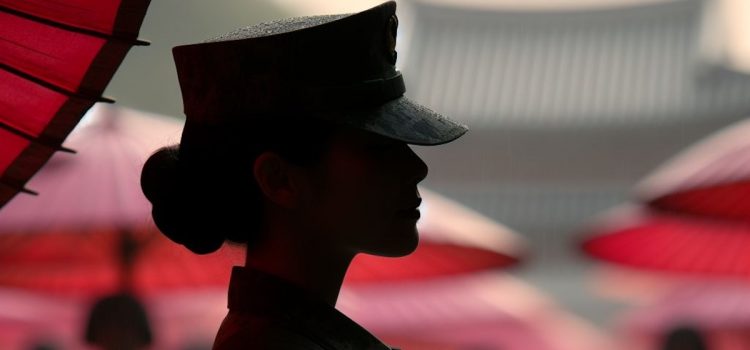

This article is an excerpt from the Shortform guide to "Rotten Mango". Shortform has the world's best summaries and analyses of books, podcasts, and more.
Like this article? Sign up for a free trial here.
What’s it like to be a woman in the South Korean armed forces? What can we learn from the shocking case of Lee Ye-ram?
The tragic death of South Korean Air Force Sergeant Lee Ye-ram has drawn attention to the way South Korean military women are treated. Sergeant Lee’s story exposes severe systemic issues that demand reform to better protect female service members in South Korea’s male-dominated military culture.
Read more to learn more about the case, as discussed on an episode of Stephanie Soo’s podcast Rotten Mango.
South Korean Military Women
The life and death of South Korean Air Force Sergeant Lee Ye-ram exposes troubling systemic issues within the country’s military culture, particularly for South Korean military women. After enduring sexual assault and immense distress in the aftermath, Sergeant Lee took her own life just 81 days later.
Sergeant Lee married her fiancé while in active duty, a union stemming from both love and a desire to expedite their military relocation under spousal transfer policies. This practical move briefly provided hope before being overshadowed by continued challenges.
The distressing circumstances surrounding Sergeant Lee’s death signify an urgent need for systemic reform to better protect servicewomen. Podcaster Stephanie Soo reflected on the tragedy, emphasizing self-care and mental health awareness for her audience while committing to honor Sergeant Lee’s legacy through ongoing dialogue.
Context
To fully comprehend the tragedy of Sergeant Lee Ye-ram, it is vital to examine the background of South Korean military culture and hierarchy, including the difficulties faced by women service members. Like many armed forces, the South Korean Air Force operates within a strict chain of command where power dynamics heavily influence behaviors. This environment enabled the sexual assault Sergeant Lee endured and failed to adequately support her in the aftermath.
Cases of sexual misconduct in militaries persist globally, despite efforts to prevent them. Unequal treatment and opportunities for women versus men are exacerbated by hierarchical dynamics that can protect perpetrators.
Podcaster Stephanie Soo highlighted the urgent need for systemic reform to better prevent abuse and protect servicewomen. Broader change is required to address women’s rights and sex equality in South Korea’s male-dominated forces.
Related Reading
Women, Regardless: Understanding Gender Bias in U.S. Military
Male Soldiers are afraid of lowered physical standards, increased sexual assault and harassment, reduced readiness, and destruction of the masculine culture of brotherhood. However, much of what is discussed here goes beyond the thoughts and attitudes about women integrating into jobs in previously closed MOSs.

———End of Preview———
Like what you just read? Read the rest of the world's best guides to Rotten Mango" at Shortform.
Here's what you'll find in our full Rotten Mango episode summaries:
- Shocking true crime stories from around the world
- Cases ranging from obscure incidents to infamous crimes in history
- Key facts about each topic that help you connect to the story






